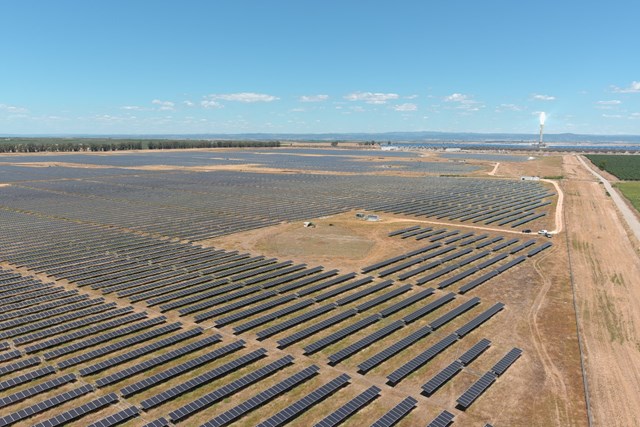Ingeteam is to contribute to the development of a solar and battery energy storage hybrid project in eastern Australia.
The Maryvale solar and energy storage project in New South Wales will comprise 243MWp of installed PV power co-located with a 172MW/2.4-hour battery energy storage system (BESS).
Clean energy solutions provider Gentari, the owner of the project, has issued a notice to proceed, prompting PCL Solar to begin the engineering, procurement and construction (EPC) works.
Ingeteam has signed an agreement with Gentari to contribute to the project, which it says is the first DC-coupled solar-plus-storage hybrid plant being developed in eastern Australia.
Under the deal, Ingeteam will supply 32 power stations, including a total of 61 central PV inverters and 488 units of 430kW DC-DC storage converters.
Ingeteam will also provide its hybrid plant controller, which will manage the operation of the almost 400,000 photovoltaic panels and the 122 battery containers distributed across the site.
The PV panels will be connected to the batteries in “DC coupling” mode. This means that the battery can be charged using solar power with no loss through DC to AC conversion.
Ingeteam said this allows the project to store solar energy during the day, when prices are typically lower, and discharge the batteries to utilise this electricity during evening demand peaks, when prices are usually higher. This makes the power conversion process more efficient and enables the operating time range of the solar farm to be expanded, the company said.
Ana Goyén, Ingeteam’s solar PV and BESS director, said, “We are delighted to continue contributing our technology to decarbonising the energy mix of the Australian National Electricity Market.”
She added that projects integrating solar and storage technology aim to balance sustainability and energy security, while offering greater potential for managing the solar resource and generating energy much more efficiently.
The project will have a maximum export capacity of 172MW into Australia’s National Electricity Market, and a maximum import capacity of 91MW.
Combining solar and battery storage will allow the project to produce more than 520GWh of clean energy annually, enough to power around 82,000 Australian households and prevent the emission of nearly 412,000 tonnes of carbon dioxide.
The Maryvale project is set to come into operation in the second quarter of 2027.

